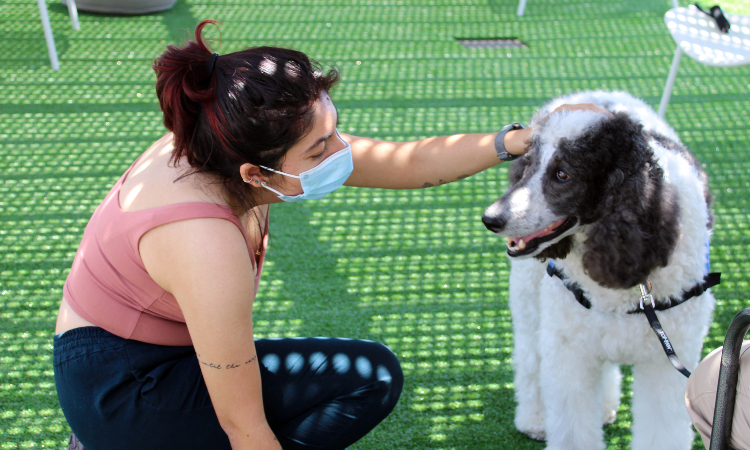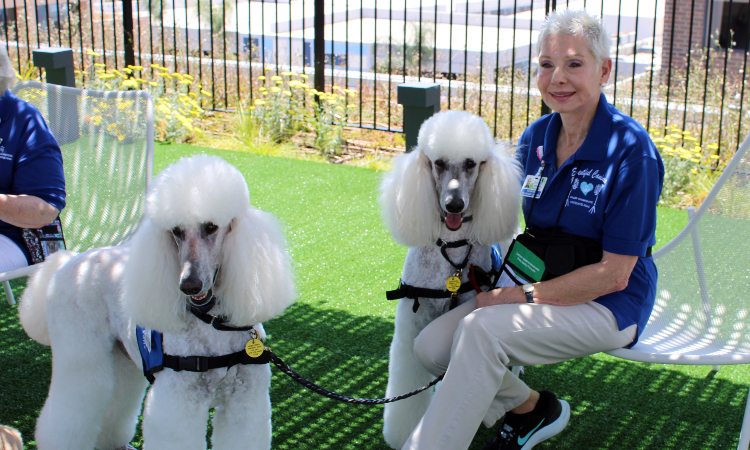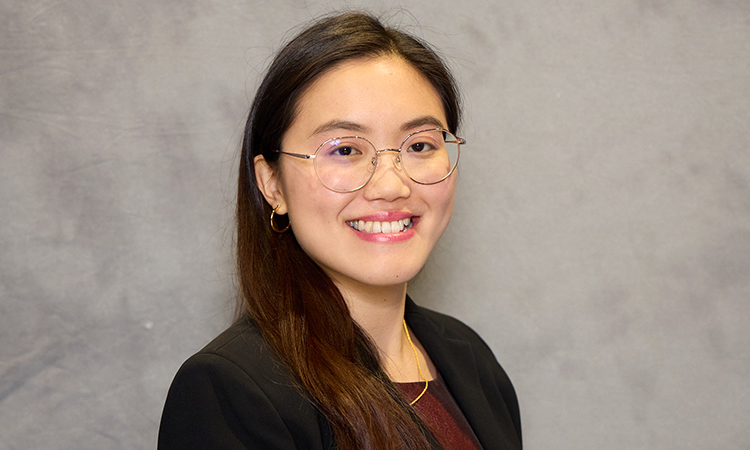The pressure of end-of-year exams can have some medical students feeling more than a little stressed out. Fortunately, there are friendly (and furry) faces who are trained in the art of just chilling out and making everyone around them feel calm and comforted. There’s no conversation necessary, though they’re good listeners. For their companionship and support, they ask nothing in return.
Except maybe that you pet them once in a while.
“There’s nothing like walking onto the roof of your school and seeing a bunch of dogs,” said KPSOM student Benjamin Metrikin. “The dog named Ben was especially cute, and we really connected. I grew up with a dog, and so having them there kind of takes you out of the normal, stressful trajectory of your day and reminds you to look at the bigger picture.”
Therapy Dog Study Break is a program created by the Office of Student Affairs and Paws For Love, a volunteer troupe of trained dogs and their humans based at the Kaiser Permanente Woodland Hills Medical Center. For more than a decade, the group has been visiting with patients, doctors, nurses, children, and community members to help relieve the stresses of health issues, traumatic events, grief, and the pressures of the COVID-19 pandemic. In early June, two canine-assisted study breaks were held in the days leading up to the first-year and second-year students’ NBME Customized Assessment Service (CAS) Exams.
Michelle Juarez, Director of Academic Support and Advising and Disability Access, said the program is “designed to promote the importance of taking breaks during academic high-stress times and to provide KPSOM students with sources of stress relief during major exam periods. While it can at times feel impossible to take breaks leading up to an assessment week, we wanted to provide a calming space that encourages students to focus on their well-being during set times.”
Juarez said the therapy dog events, which began in September 2021 and are held as needed, are just one part of the school’s overall de-stressing resources for students, which provide relief during major exam periods, allow students to focus on their own well-being, and create informal spaces at the school where students can connect with academic advisers.




